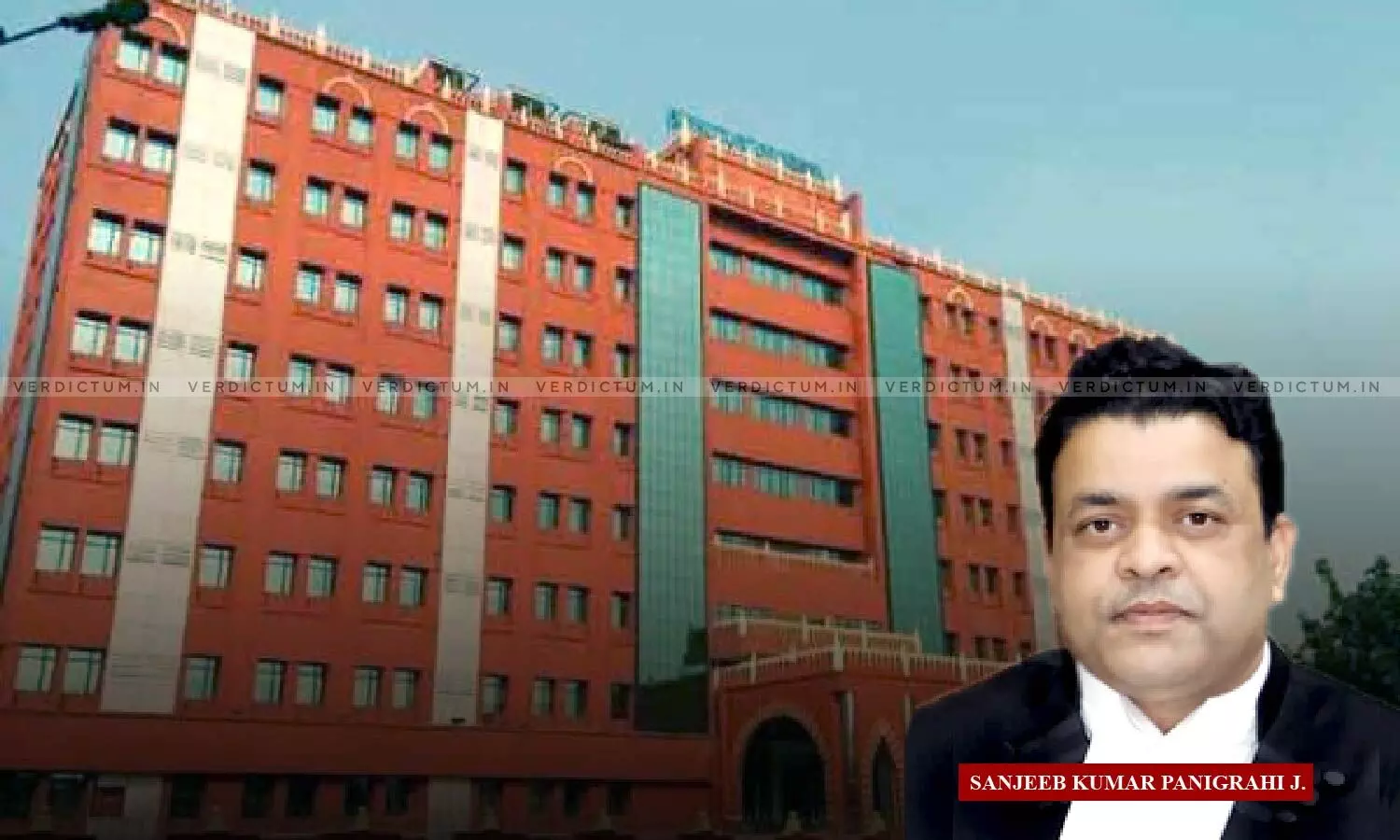
"An Attempt To Outpace Law": Orissa High Court Orders Rs. 10L Compensation For Arbitrarily Demolishing Community Centre
 |
|The Orissa High Court considered a case of “bulldozer justice", wherein the Community Centre was demolished in haste and arbitrary manner.
The Orissa High Court observed that when the State proceeds to demolish a structure, knowing that the order has not yet been passed and that judicial scrutiny is underway, raises a serious concern. Acting while an order is reserved is not simply premature. It is, in substance, an attempt to outpace the law itself and such actions cannot be condoned.
A Writ Petition was filed seeking a direction to declare the demolition of the community structure as illegal, as the same was demolished by the State Authorities in haste and secrecy, and in violation of the Supreme Court’s directions regarding demolition of structures.
The Bench of Justice S.K. Panigrahi observed, “What is at stake here is not the legality of one demolition, but the integrity of a constitutional culture. When executive action arrogates to itself the role of judge, jury, and executioner, the harm that follows is not merely institutional, it is civic…The moment that process becomes expendable, so does the public’s faith in the neutrality of governance. This Court is duty-bound to restore that balance, for what is lost here is not only a building, but also the belief that law is a shield against arbitrariness.”
Advocate Ninad Laud represented the Petitioners, while Advocate J. Sahoo represented the State.
Case Brief
A community centre, which was established using public funds and used by villagers for public utility purposes, was demolished hastily.
During the pendency of encroachment proceedings, the High Court directed that no eviction shall take place during the pendency of the appeal. Despite the order, a new eviction notice dated December 05, 2024 was issued, prompting the Petitioners to approach the High Court again in which the High Court reiterated its stance, restraining eviction during the pendency of the appeals on December 13, 2024.
On the same day, the Sub-Collector concluded the hearing and allegedly reserved orders in the appeal around 4 PM. However, at approximately 5.15 PM, a demolition notice was affixed, indicating that the structure would be demolished the next morning. On December 14, 2024 at 10:00 AM, the structure was demolished, allegedly without affording the Petitioners adequate time to challenge the order or vacate the premises.
The Opposite Party contended that the structure in question was an unauthorized encroachment and the Petitioners failed to establish any legal right or valid possession; thus, the demolition was a lawful enforcement action carried out in accordance with statutory powers.
Court’s Reasoning
The Orissa High Court opined that the sequence of events raises not just concerns of administrative lapse, but of deeper institutional failure. An act as final and irreversible as demolition was carried out despite two standing judicial directions, and without even the most basic procedural safeguards mandated by the Supreme Court in In Re: Directions in the matter of demolition of structures (2024).
“This is not a procedural misstep. It reflects a troubling pattern, where the machinery of the State appears to act not in aid of the law, but in anticipation of avoiding its outcome. The space between a matter being heard and a decision being delivered is not an empty procedural formality. It is a phase in which the law is still at work. The authority of the appellate forum does not vanish simply because it is silent for a moment. That silence is deliberate. It reflects the court’s duty to think, not the executive’s opportunity to act”, the Court observed.
The Bench further emphasised on the fact that the demolition did not occur in a moment of administrative necessity. It was not the outcome of a duly completed adjudicatory process. It was carried out while the matter was still under active judicial consideration, with the appellate authority having reserved its decision.
Further, it was held that, “What is even more troubling is that the consequences of such executive haste are not merely institutional or procedural, they are deeply human. Law is not merely a tool to regulate action; it is also a shield against arbitrary force…This case, therefore, cannot be assessed solely through the lens of administrative law. It must also be understood as an instance where a constitutionally protected interest in property was extinguished not through judicial determination, but through executive fiat.”
The Court referred to Article 300A of the Constitution of India and highlighted that forcible dispossession of a person from their property, without adherence to due process of law, constitutes not only a violation of their constitutional right under Article 300A but also an affront to basic human rights.
The Orissa High Court also took account of the growing and troubling pattern in regard to “bulldozer justice”, where executive power, backed by machinery rather than reason, supplants legal process. The Court opined that it is not the bulldozer per se that offends constitutional sensibilities, but the ease with which it is deployed before the law has spoken its final word
In the light of the above, the Court held that the Tahasildar has shown undue haste in demolishing the structure, without adhering to the guidelines issued by the Supreme Court of India and ordered compensation of Rs. 10 Lakh, out of which Rs 2 Lakh shall be recovered from the Tahasildar concerned and Rs 8 Lakh shall be paid by the State to the Petitioner.
Accordingly, the Writ Petition was allowed.
Cause Title :Kumarpur Sasan Juba Gosti Kendra and Ors. V. State of Odisha and Ors.
Appearance:
Petitioners: Advocate Ninad Laud and L. K. Moharana
Opposite Party: Advocate J. Sahoo
Click here to read/download Judgment.